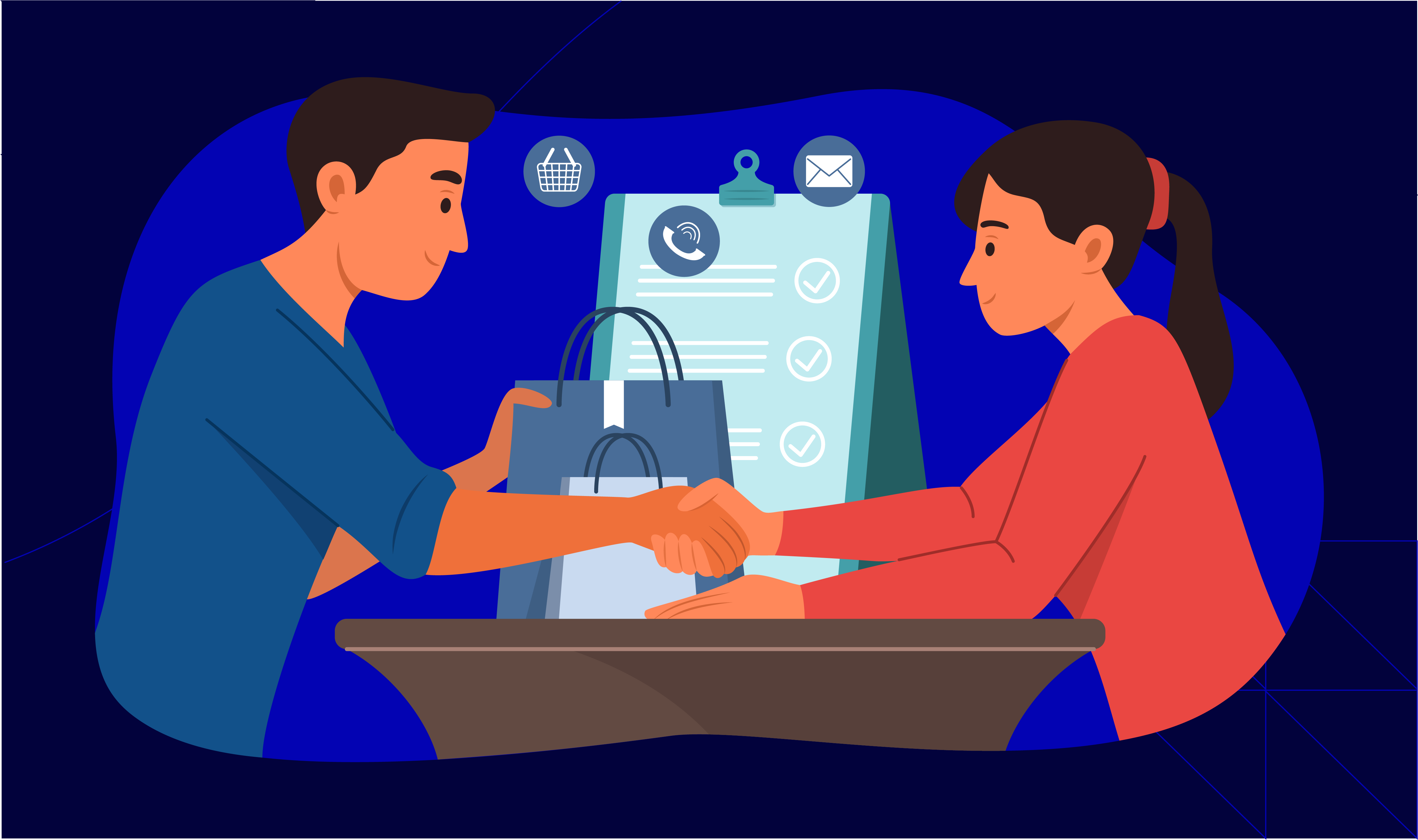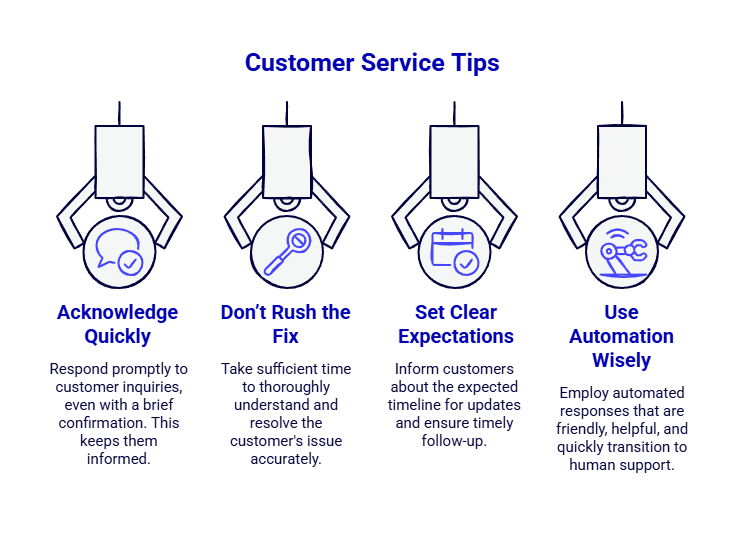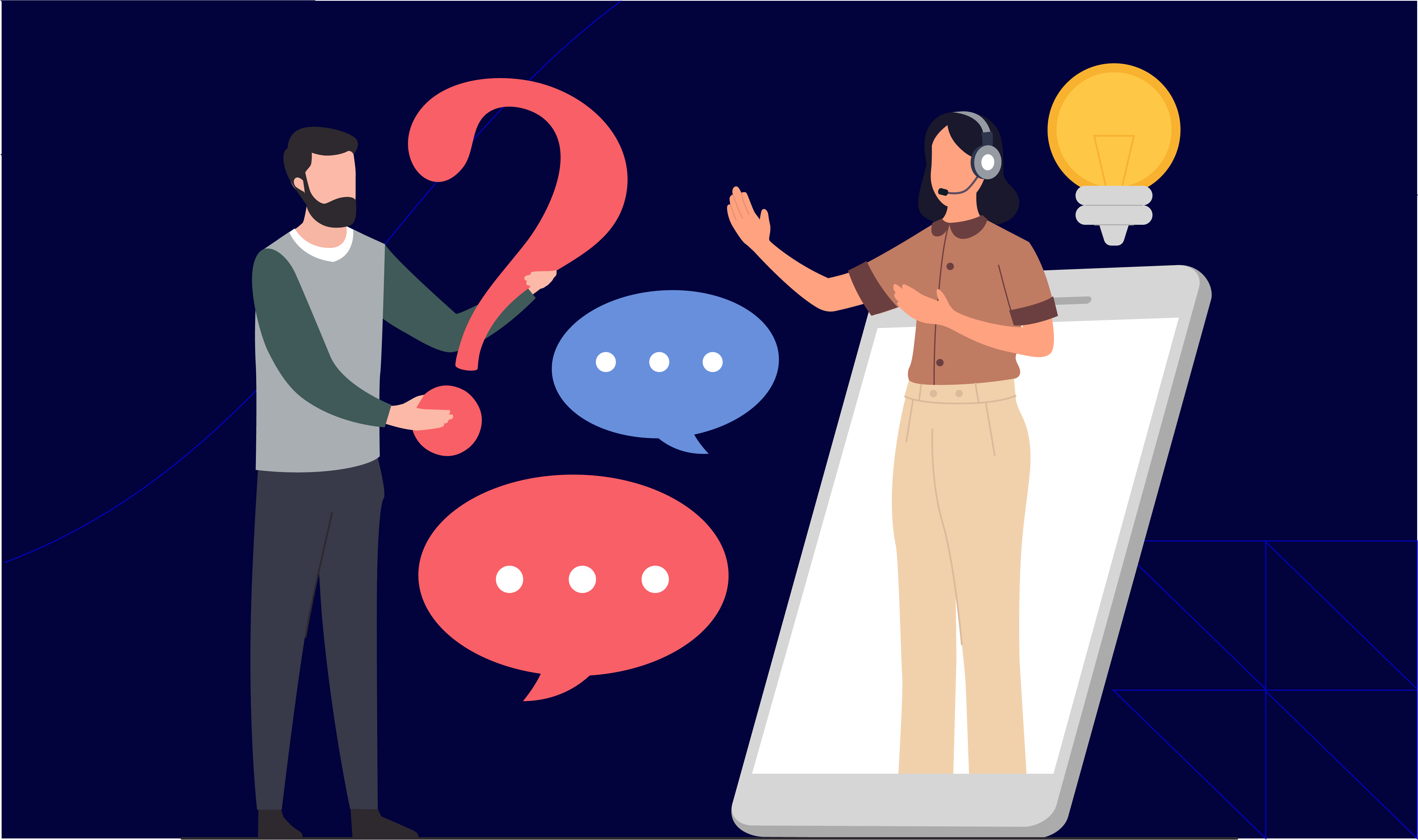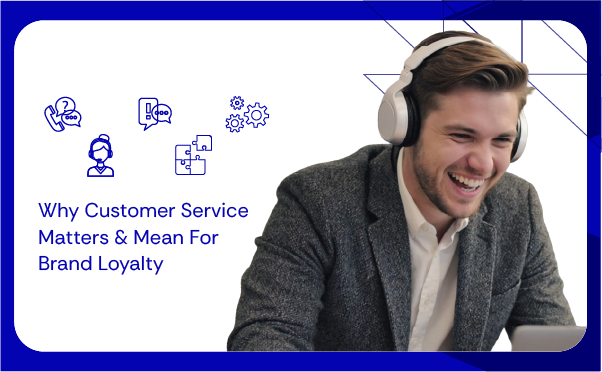Key Takeaways
- Great customer service is more than just solving problems, it’s the foundation for brand trust and long-term loyalty.
- When you consistently deliver positive support experiences, customers stick around, spend more, and become brand advocates.
- Creating loyalty in customer service comes down to empathy, speed, personalization, and reliability.
- In today’s hyper-competitive world, customer service isn’t a support function, it’s a brand differentiator.
Why Customer Service Matters More Than You Think

Let’s be honest: everyone has a customer service story.
Maybe your package went missing, and the support team fixed it in minutes. Or maybe you had a billing issue, and the rep not only sorted it out but followed up later to make sure everything was okay. That’s a great memory.
Or…remember the time you needed help, and you waited on hold forever. Got bounced from person to person. Told your story several times, only to end up more frustrated than when you started. If this happened, you probably lost patience, lost trust, and the brand you were dealing with certainly lost a customer. That’s why customer service matters more than most people think.
Customer service is your brand’s moment of truth. It’s when customers find out if you really care. It’s what customers end up remembering. In a world where products are similar and prices are competitive, how you treat your customers after the sale is what sets you apart. And the stats back this up:
- Forbes reports that 58% of customers will pay more for great customer service.
- Research by Salesforce indicates that 88% of customers say that good customer service makes them more likely to purchase again.
- 80% of customers will forgive a bad customer experience if they otherwise rate the customer service as very good.
Now that we’ve established just how much customer service matters, let’s get into how customer service goes hand in hand with brand loyalty.
The Link Between Customer Service and Brand Loyalty

Customer service is all about building relationships. And just like in real life, strong relationships take consistency, care, and follow-through. When a brand shows up for you, that’s when trust is built. And trust is the bedrock of loyalty. When a company responds quickly, treats you with respect, and makes your life easier? You remember that. You come back. You buy again. You even tell your friends. That kind of experience sticks.
So yes, customer service for creating brand loyalty isn’t a nice-to-have. It’s your growth engine. It’s about being responsive. Being human. Customers don’t expect you to never make mistakes, but they just want to know you’ll own it and fix it when you do. And if you consistently deliver that kind of support? That’s how customer service turns into long-term loyalty.
What Does Creating Loyalty in Customer Service Actually Look Like?

Let’s break it down. Loyalty doesn’t magically happen just because you have a helpdesk. It’s built through every interaction, and here’s how the best brands do it:
1. Be Human First
Nobody wants to feel like they’re talking to a robot. Yes, scripts and bots can be helpful. They speed things up, handle routine questions, and keep queues moving. But the moment a customer’s problem doesn’t fit into the script? 55% of customers believe that that’s when they want to talk to a human. That’s why being human first is the most powerful thing your support team can do.
Here’s what that actually looks like:
- Ditch the overly formal tone. Speak like a real person, not a policy manual.
- Listen actively. Often, people just want to feel heard before you jump into fixing mode.
- Personalize the interaction. Use their name. Refer to their last order. Acknowledge their frustration if they’re upset.
- Empower your team to go off-script if that helps the customer feel better.
A kind, understanding, and human-centered interaction can completely turn around a bad situation. It can take an angry customer and turn them into a loyal one.
2. Be Fast, But Not Rushed

Waiting too long is one of the top reasons people abandon brands altogether. Data indicates that 60% of customers wouldn’t wait on hold for more than a minute. However, while speed matters, great customer service is not just about being fast. Because getting a quick response that feels cold, robotic, or copy-pasted from a template? That’s not much better than getting no reply at all.
So, what’s the sweet spot? Respond quickly, but like you actually care. Here’s how to hit that balance:
- Acknowledge quickly. Even if it’s just a “Got it, I’m looking into this for you,” it keeps the customer in the loop.
- Don’t rush the fix. Take the time to understand the issue and get it right.
- Set clear expectations. Let them know when to expect the next update, and then actually follow through.
- Use automation the right way. Auto-replies are fine as long as they’re warm, informative, and lead to a human follow-up soon after.
This matters when it comes to building loyalty because customers don’t always expect instant resolution, but they do expect visibility. They want to know they’ve been heard, and that someone competent is working on their issue.
3. Consistency is Everything
Loyalty is built on trust, and trust is built on consistency. Customers expect great service every single time. So what does consistency really look like?
- Same tone of voice across channels: Your brand personality should show up whether the customer is talking to someone on the phone, chatting on your website, or reading a support email. If you’re friendly and empathetic on chat, don’t be cold and robotic in email.
- Equal quality across platforms: Phone support can’t be amazing while email responses take several days.
- Predictable processes: If a return was easy last time, it should be easy this time too. If a refund took 24 hours before, don’t make them wait a week now. Keep your systems tight and your responses reliable.
- Aligned team behavior: Regardless of who a customer is speaking to, they should get the same level of care, clarity, and helpfulness. That comes down to great training, shared values, and clear expectations.
When you’re consistent, customers know what to expect. They trust you’ll show up for them. And that’s what keeps them coming back.
4. Solve Problems the First Time
One of the most powerful things your support team can do is solve the customer’s problem the first time they ask. Why does this matter?
Because first-contact resolution says everything about your brand:
- It says your team knows what they’re doing.
- It says you value your customers’ time.
- It says your systems are working the way they should.
Customers love when something that could’ve been a mess is handled smoothly, clearly, and without dragging things out. So how do you get there?
- Train your team to dig deeper: Encourage agents to ask the right questions upfront so they don’t miss critical details.
- Empower reps to own the issue: No passing the buck. Just solve it or escalate it with context.
- Give them the tools and authority to act: If your team has to get manager approval for every refund or fix, you’re slowing things down, and frustrating customers in the process.
- Log everything clearly: That way, if a customer does need to come back, they’re not starting from scratch. The next agent can pick it up and keep things moving.
5. Follow Up and Follow Through
One of the easiest (yet most overlooked) ways to build trust is to follow up. Just checking in after the dust settles shows your customer something powerful: “Hey, we didn’t just want to close the ticket. We wanted to make sure you’re okay.”
And in a world where people are used to being passed around and forgotten once the “case is closed,” that kind of thoughtful touch stands out.
What does following up look like?
- A quick email that says, “Hey, just wanted to check if everything got sorted the way you needed?”
- A message asking, “Was the experience helpful? Is there anything else we can do?”
- A simple NPS or CSAT survey to get honest feedback and show you actually care about improving.
It takes just a few minutes. But the impact? Huge. And don’t forget the second part: Follow through. Together, they turn a one-time resolution into a long-term relationship.
Why Customer Service Isn’t Just Support, It’s Your Brand

Customer service isn’t just something that kicks in after the sale or when something goes wrong. It’s an active component of your brand. It’s how your company shows up when it matters most. And in today’s hyper-competitive, ultra-connected world, that might be the only thing that sets you apart. When you consistently deliver great service:
- Customers feel genuinely valued
- They stick with you, even when a competitor dangles a discount
- They turn into advocates who hype your brand for free
So if you’re serious about growth, retention, and reputation, then investing in your customer service is a strategic move. And that’s where Atidiv comes in. We help forward-thinking brands turn their customer service from a basic function into a true loyalty engine. Whether you need:
- A seamless omnichannel helpdesk
- A high-performing remote support team
- Smarter workflows and faster response times
- Or just a partner who gets it and helps you scale…
We’ve got your back. Partner with Atidiv to scale smarter!
FAQs On Why Customer Service Matters
1. Why does customer service matter in business?
Because it directly impacts how customers perceive your brand, how loyal they are, and whether they come back or walk away after one bad experience.
2. How does customer service help create brand loyalty?
By showing customers that you care. When support is fast, friendly, and helpful, it builds trust. And trust is what keeps customers loyal over the long term.
3. What makes customer service great?
Great service is human, consistent, responsive, and solution-oriented. It’s about listening, solving problems quickly, and following through.
4. Can small businesses benefit from customer service for creating brand loyalty?
Absolutely! In fact, small businesses often have an advantage because they can provide more personal, responsive support that bigger brands sometimes struggle to match.
5. What’s the best way to start creating loyalty in customer service?
Focus on empathy, speed, and consistency. Train your team to treat every interaction as an opportunity to build trust and not just close a ticket.

